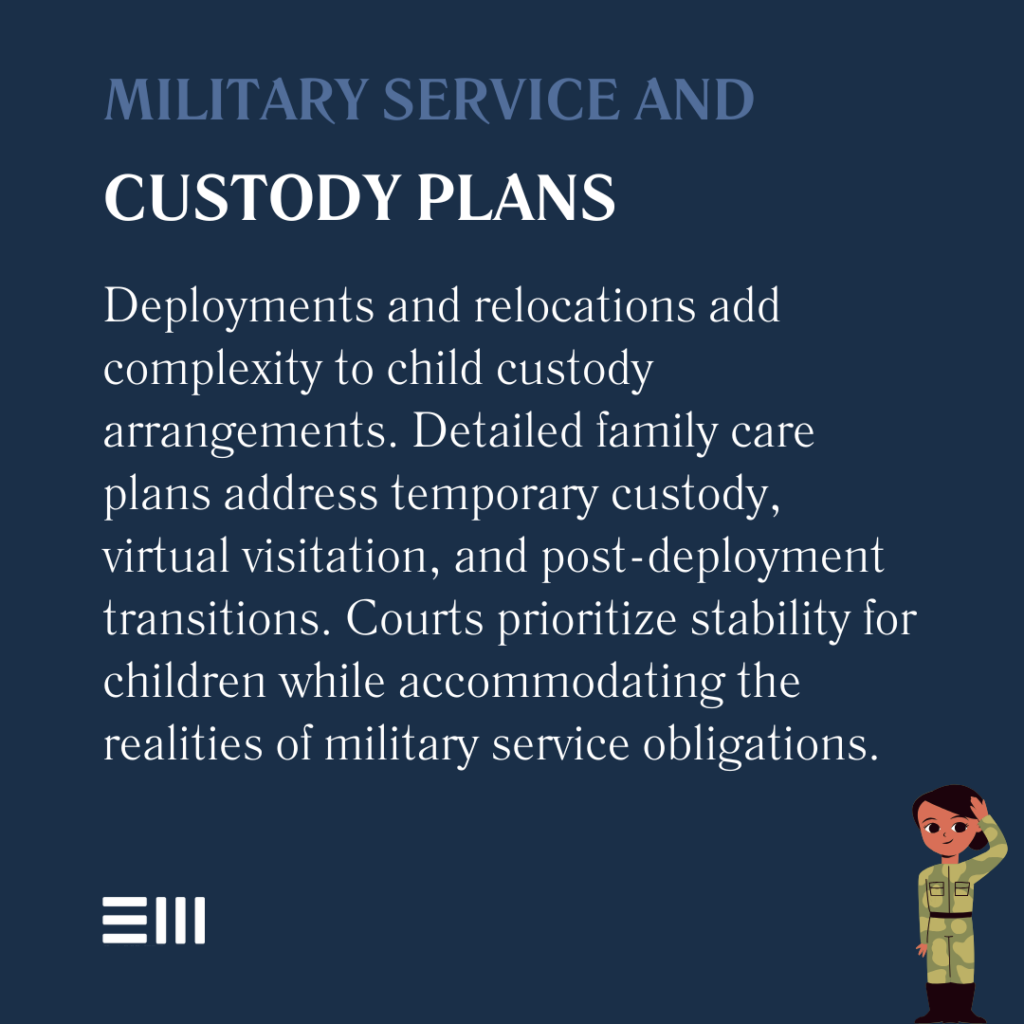
Behind every military uniform stands a family navigating the unique challenges of service life. When marriages face difficulties, military families encounter a maze of federal regulations, state laws, and military protocols that civilian couples never have to consider.
From the halls of Maxwell Air Force Base to deployments across the globe, Alabama’s military community faces distinct challenges when marriages end.
The intersection of civilian law and military regulations creates a complex landscape where even experienced family law practitioners must carefully navigate the nuances of military divorce.
Understanding Military Divorce in Alabama
Military divorce combines federal law, state family law, and military regulations, creating a complex legal landscape unique to service members and their spouses.
Alabama courts handle military divorces differently from civilian cases, particularly regarding residency requirements, service of process, and the division of military benefits.
The state’s significant military presence has led to established precedents that help protect both service members’ and spouses’ rights during divorce proceedings.
These distinct regulations affect everything from the timing of your divorce filing to the distribution of retirement benefits.
Military families must also consider the impact of frequent relocations, deployment schedules, and specialized military benefits when planning their divorce strategy.
Understanding these differences helps you make informed decisions about your future while navigating the complexities of military service.
Frequently Asked Questions About Military Divorce in Alabama
Military families often encounter specific challenges during divorce proceedings that civilian couples don’t face.
The questions below address the most common concerns raised by both service members and their spouses seeking divorce in Alabama, offering clarity on complex issues that arise when military service intersects with family law.
How Does Military Service Affect Where I Can File for Divorce in Alabama?
Alabama allows military members to file for divorce if they’ve been stationed in the state for at least six months. Unlike civilians, service members can maintain Alabama residency even when stationed elsewhere, provided they intend to return.
Military spouses may also file in Alabama if the service member is stationed here, regardless of their own residency status. The flexibility in residency requirements acknowledges the mobile nature of military life while ensuring access to the legal system.
What Happens to Military Benefits During and After Divorce in Alabama?
Military benefits, including healthcare coverage and commissary privileges, typically continue for qualifying spouses under the 20/20/20 rule—requiring 20 years of marriage, 20 years of service, and 20 years of overlap.
Former spouses who don’t meet these criteria may retain certain benefits temporarily. Child dependents maintain their benefits regardless of the divorce outcome. Understanding these benefits is crucial as they can significantly impact both parties’ financial futures and healthcare access.

Can I Start Divorce Proceedings if My Spouse Is Deployed?
While you can initiate divorce proceedings during deployment, the Servicemembers Civil Relief Act (SCRA) allows active-duty service members to request a stay (delay) of court proceedings.
This protection ensures that military duties don’t compromise their legal rights. Courts typically grant a minimum 90-day stay, with possible extensions based on military necessity.
This balance protects both the deployed service member’s rights and the spouse’s ability to move forward with necessary legal proceedings.
How Are Military Pensions Divided in an Alabama Divorce?
Alabama courts can divide military pensions according to the Uniformed Services Former Spouses’ Protection Act (USFSPA).
The portion of retirement pay earned during marriage is considered marital property and subject to division. This division isn’t automatic – it must be specifically addressed in the divorce decree and meet federal guidelines for direct payment from the Defense Finance and Accounting Service (DFAS).
The complexities of the military pension division often require specialized knowledge of both federal and state requirements to ensure proper distribution.
What Protection Does the Servicemembers Civil Relief Act Provide?
The SCRA offers several key protections during divorce proceedings:
- Postponement of court hearings when military service affects attendance;
- Protection from default judgments without proper notification;
- Opportunity to reopen cases if military service prevented proper defense;
- Reduced interest rates on pre-service obligations;
- Protection from eviction without court order; and
- Ability to terminate certain contracts and leases upon deployment.
These protections ensure that service members can focus on their military duties without compromising their legal rights during divorce proceedings.
Courts take these protections seriously and generally err on the side of protecting service members’ interests when deployment or active duty conflicts with legal proceedings. Understanding and properly invoking these protections can be crucial for maintaining fairness in the divorce process.
How Does Military Service Impact Child Custody Arrangements?
Alabama courts consider military service when determining custody arrangements, requiring detailed family care plans that address:
- Temporary custody arrangements during deployment;
- Communication plans between deployed parents and children;
- Post-deployment custody transitions;
- Geographic limitations and potential duty station changes;
- Virtual visitation options during separation;
- Emergency caregiver designations; and
- School and medical decision-making protocols.
Creating comprehensive custody arrangements that account for military service requires careful planning and consideration of both immediate and long-term deployment possibilities. These plans must balance the child’s need for stability with the reality of military service obligations.

What Rights Do Military Spouses Have to Base Housing During Divorce?
Military spouses may retain base housing privileges temporarily during divorce proceedings. However, once the divorce is final, non-military former spouses typically must vacate base housing within 30 days.
Transition assistance and housing allowances may be available depending on the length of marriage and military service. The timeline and available support can vary based on individual circumstances and base policies, making early planning essential for housing transitions.
How are Military Allowances Calculated for Child Support?
Alabama courts consider all military compensation when calculating child support, including:
- Base pay;
- Basic Allowance for Housing (BAH);
- Basic Allowance for Subsistence (BAS);
- Special duty pay;
- Combat pay;
- Flight pay and hazardous duty pay;
- Overseas housing allowances; and
- Cost of living allowances.
Understanding how these various forms of military compensation factor into child support calculations is crucial for both parties.
The military’s involvement through command channels adds an extra layer of enforcement, helping ensure dependents receive proper support while maintaining the service member’s ability to fulfill their military obligations.
Accurate calculation of military compensation requires thorough knowledge of the various pay types and allowances service members receive.
Taking the Next Step Together
Military divorce involves intricate legal considerations that can significantly impact your future.
Our team understands the unique challenges facing military families during divorce and can help protect your interests while navigating both state and federal requirements.
Contact us today for a confidential consultation to discuss your specific situation and develop a strategic plan forward.
Can't find what you're looking for? Search our site below.










